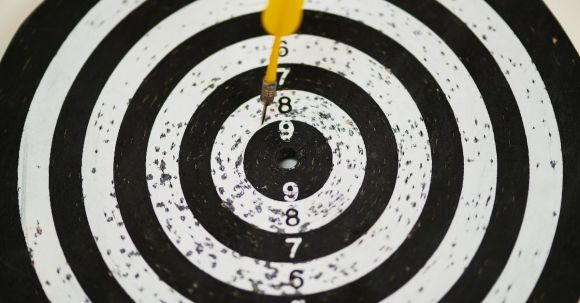Setting goals is a crucial step towards achieving success in any aspect of life. Whether it’s personal, professional, or academic, having clear goals helps provide direction and motivation. However, merely setting goals is not enough; one must also develop effective strategies to ensure those goals are achieved. In this article, we will explore some valuable techniques for developing effective goal-setting strategies.
1. Visualize Your Goals
Before diving into the specifics of goal-setting, take some time to visualize what you want to achieve. Close your eyes and imagine yourself already achieving your goals. Visualizing success helps create a positive mindset and fuels motivation. It also allows you to identify potential obstacles and develop strategies to overcome them.
2. Set SMART Goals
One of the most effective goal-setting strategies is to follow the SMART framework. SMART stands for Specific, Measurable, Achievable, Relevant, and Time-bound. By setting goals that are specific, measurable, and achievable, you increase the likelihood of success. Additionally, ensuring your goals are relevant and time-bound provides a sense of urgency and focus.
3. Break Down Your Goals
Breaking down your goals into smaller, actionable tasks is essential for effective goal-setting. By breaking down larger goals into manageable steps, you can track your progress and maintain motivation. Each task accomplished brings you closer to your ultimate goal, providing a sense of achievement along the way.
4. Prioritize Your Goals
It’s important to prioritize your goals to avoid feeling overwhelmed. By identifying which goals are most important and aligning them with your values, you can focus your time and energy on what truly matters. Prioritizing also enables you to allocate resources efficiently, ensuring maximum productivity.
5. Create a Timeline
To stay on track and monitor your progress, create a timeline for your goals. This timeline should include deadlines for each task and an overall target completion date. By having a clear timeline, you can hold yourself accountable and make adjustments if necessary. Regularly reviewing and updating your timeline keeps you motivated and helps you stay organized.
6. Seek Support and Accountability
Achieving goals becomes easier when you have a support system. Share your goals with trusted friends, family members, or mentors who can provide guidance and encouragement. Additionally, consider finding an accountability partner who can hold you responsible for your progress. Regular check-ins with your support system can help you stay motivated and focused on your goals.
7. Stay Flexible and Adapt
While setting goals is essential, it’s equally important to remain flexible and adapt when necessary. Life is unpredictable, and circumstances may change along the way. Be open to adjusting your goals or strategies as needed without losing sight of your overall vision. By embracing flexibility, you can overcome obstacles and find alternative paths to success.
In conclusion, developing effective goal-setting strategies is crucial for achieving success. By visualizing your goals, setting SMART goals, breaking them down into actionable tasks, and prioritizing them, you lay the foundation for success. Creating a timeline, seeking support and accountability, and staying flexible ensure that you stay on track and adapt to any challenges that may arise. Remember, effective goal-setting is not just about setting goals; it is about taking consistent action towards achieving them.





